A two-cents per minute surcharge on Internet calls.
Published:
13 June 1999 y., Sunday
Kiwi Internet users and ISPs are outraged at a planned move by New Zealand_s major telco to introduce a two-cents per minute surcharge on Internet calls.Telecom New Zealand, the country_s largest telco and monopoly provider of local loop connections to virtually all households announced Thursday that as of August, ISPs and Net surfers would have to dial a special prefix to go online or face a two cents per minute surcharge on their calls. Citing the excessive burden which Internet calls are placing on the New Zealand telephone network, Telecom NZ says that by using the special 0867 prefix, data calls can be routed through its "intelligent network", thus preserving the integrity of the telephone system. "We don_t want the situation where someone is unable to make a 111 (emergency service) call because the lines are overloaded with Internet users" said Telecom NZ spokesman Glen Sowry. He said that the two cents per minute charge is simply there as an incentive for people to switch to using the new prefix and that providing the change is made, nobody will be charged the fee -- others likely to be directly affected by the change have labeled the fee an Tim Wood of Internet Service Provider IHUG has slammed Telecom NZ_s move. "How can they announce the move to providing a flat rate service and then turn around and blame the Internet for overloading their network just a week later?" he asks. His comments refer to Telecom NZ_s recent introduction of a flat-rate for Internet access through its own ISP service XTRA. Until this announcement XTRA, the country_s largest ISP, was charging up to $2.50 per hour for Net access. New Zealand residential telephone users normally pay no per-minute charges for telephone calls, a privilege protected by the "Kiwi Share" -- a provision of the sale contract which was produced when the former state-owned telco was privatized. Telecom NZ_s announcement of the two cent per minute fee is seen by most to be a clear breach of this Kiwi Share agreement and several ISPs have already met to discuss a legal challenge to the move.
Šaltinis:
Internet
Copying, publishing, announcing any information from the News.lt portal without written permission of News.lt editorial office is prohibited.
The most popular articles
Software company announced new structure_ of it_s business.
more »
 The electronic vignette system in the Slovak Republic has become unique in the world thanks to the speed of implementation and increase in the revenues from the collection carried out by SkyToll a.s. on behalf of the Slovak government.
more »
The electronic vignette system in the Slovak Republic has become unique in the world thanks to the speed of implementation and increase in the revenues from the collection carried out by SkyToll a.s. on behalf of the Slovak government.
more »
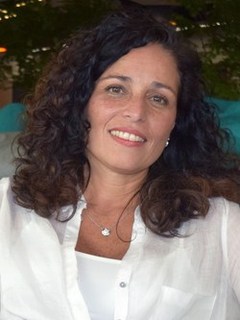 Unisys has promoted Perla Do Amral to a key leadership role, becoming director of service desk operations for the U.S.-based IT company’s managed services centers in Latin America.
more »
Unisys has promoted Perla Do Amral to a key leadership role, becoming director of service desk operations for the U.S.-based IT company’s managed services centers in Latin America.
more »
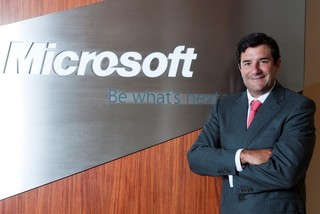 Cesar Cernuda is a Microsoft veteran of 19 years, and has served in several senior leadership positions for Microsoft Business Solutions, including overseeing Microsoft’s ERP and CRM business worldwide.
more »
Cesar Cernuda is a Microsoft veteran of 19 years, and has served in several senior leadership positions for Microsoft Business Solutions, including overseeing Microsoft’s ERP and CRM business worldwide.
more »
 Unisys received a contract from NASA Langley Research Center (LaRC) to continue to deliver advanced hardware, software, and systems integration for flight simulation projects at the agency.
more »
Unisys received a contract from NASA Langley Research Center (LaRC) to continue to deliver advanced hardware, software, and systems integration for flight simulation projects at the agency.
more »
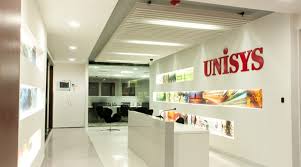 Unisys Corporation reported third quarter 2015 results.
more »
Unisys Corporation reported third quarter 2015 results.
more »
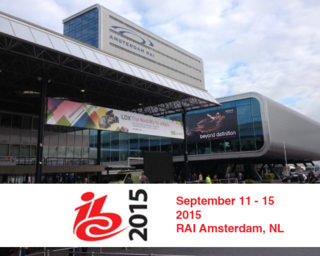 On the 10th–15th, this September, RAI Exhibition and Congress Centre in Amsterdam will hold the 48th international exhibition-conference dedicated to electronic media and entertainment industry IBC 2015.
more »
On the 10th–15th, this September, RAI Exhibition and Congress Centre in Amsterdam will hold the 48th international exhibition-conference dedicated to electronic media and entertainment industry IBC 2015.
more »
 Unisys Corporation announced the completion of the initial phase of testing of a facial recognition system at Dulles International Airport, Virginia, to help Customs and Border Protection (CBP) to identify imposters attempting to enter the United States using passports that are fraudulent or do not belong to them.
more »
Unisys Corporation announced the completion of the initial phase of testing of a facial recognition system at Dulles International Airport, Virginia, to help Customs and Border Protection (CBP) to identify imposters attempting to enter the United States using passports that are fraudulent or do not belong to them.
more »
 Television was invented back in 1884, when German Paul Gottlieb Nipkow came up with the idea to scan images using a rotating metal disc with a spiral pattern of holes in it. When the disc was spinning, each hole would scan one brightly lit line of the image.
more »
Television was invented back in 1884, when German Paul Gottlieb Nipkow came up with the idea to scan images using a rotating metal disc with a spiral pattern of holes in it. When the disc was spinning, each hole would scan one brightly lit line of the image.
more »
 SuperCom, a leading provider of secure solutions for e-Government, Public Safety, HealthCare, and Finance sectors, announced its results for the quarter ended March 31, 2015.
more »
SuperCom, a leading provider of secure solutions for e-Government, Public Safety, HealthCare, and Finance sectors, announced its results for the quarter ended March 31, 2015.
more »
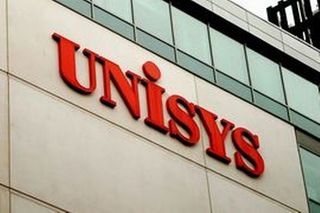 Unisys Corporation today announced that Tom Patterson has joined the company as vice president for global security solutions, responsible for leading Unisys' security solutions business worldwide.
more »
Unisys Corporation today announced that Tom Patterson has joined the company as vice president for global security solutions, responsible for leading Unisys' security solutions business worldwide.
more »